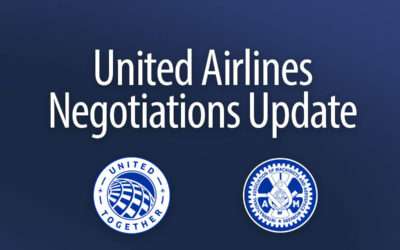As a consequence of the pandemic and associated restrictions, African airlines are forecast to lose $2 billion in 2020. Without urgent financial relief, the industry is at risk of collapse, putting about 3.3 million jobs and $33 billion in African GPD in jeopardy.
To date, the governments of Sub-Saharan Africa Rwanda, Senegal, Côte D’Ivoire and Burkina Faso have pledged a total of $311 million in direct financial support for air transport. A further $30 billion has been promised for air transport and tourism by a variety of governments and institutions throughout the region. However, much of the relief is yet to reach those in need due to bureaucracy and complex processes.
“Over $30 billion in financial support has been pledged to aviation and tourism in Africa,” said Muhammad Albakri, IATA’s Regional Vice President for Africa and the Middle East. “Some of this money has been allocated by governments, but far too little of it has reached its intended recipients. Governments and lenders need to urgently unchoke the bottlenecks so that the money can flow quickly, otherwise it will be too late to prevent closures and job losses. There will be no point re-opening the borders and skies if there is no industry left to speak of that is capable of supporting trade and tourism, which are the key components of any thriving economy.”
The harmonized adoption of the ICAO Take-Off guidance which outlines recommended biosafety measures, is also essential to the recovery of African aviation. The guidance includes adequate physical distancing, wearing face masks or coverings, enhanced sanitation and disinfection, health screening, contact tracing and the use of passenger health declaration forms. It also calls for testing, where rapid and reliable testing is available.
“To instill public confidence and avoid repeating the mistakes made after 9/11, which created disjointed airport security measures, governments and local authorities must adopt ICAO’s biosafety measures in a harmonized fashion and implement them consistently and diligently,” said Albakri. “This will also ensure that air travel is able to support the revival of economies without becoming a vector for spreading COVID-19.”
Air transport is at the core of the travel and tourism value chain. Combined the sectors support the livelihood of 24.6 million people across the continent, contribute $169 billion to Africa’s economy and represent 7.1% of the continent’s GDP.
“Containing the pandemic is the top priority,” said Albakri. “But without a lifeline of funding to keep the sector alive, and a roadmap to restart aviation safely as soon as possible, the economic devastation of COVID-19 could take Africa’s development back a decade or more. Aviation supports livelihoods, trade, education, good health and wellbeing, and quality education. It reduces hunger and poverty and ensures access to essential medical supplies and humanitarian aid, as proven throughout this crisis. Without an air transport industry, the people of Africa are at risk of not being able to realize their dreams and aspirations.”
Additional Resources /// Lobby Your Senator
RELATED ARTICLES
United Contract Negotiation (14 January 2025)
Your IAM District 141...
United Negotiations Update
Your IAM District 141...
United Negotiations Update
United Contract Negotiations...



